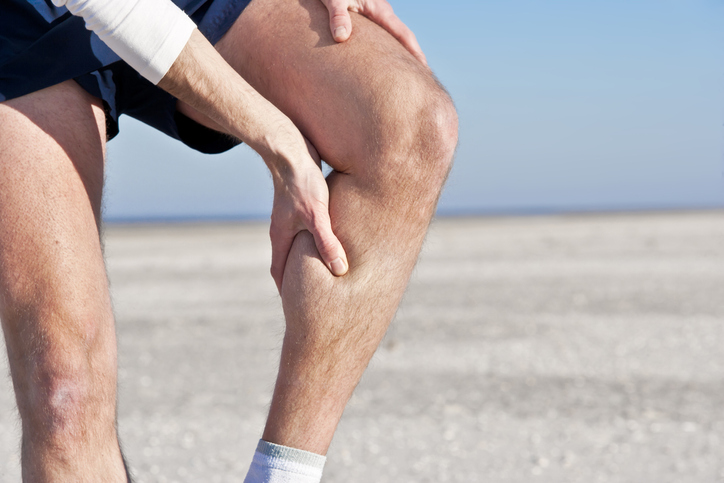Pain
Muscle Cramps or Spasms

Most people experience a muscle cramp — also known as a muscle spasm — at some point in their lives. During a muscle cramp, the muscle involuntarily contracts and fails to properly relax. Although typically harmless, muscle cramps can cause mild to severe pain and stiffness. They typically start suddenly and are brief — usually lasting a few seconds to fifteen minutes. Muscle spasms most commonly occur in the calves, thighs and back; however, any muscle in the body can spasm.
Causes of muscle cramps
Muscle cramps are caused by various factors including, but not limited to, dehydration, electrolyte imbalance (magnesium, potassium or sodium), overexertion (especially in a hot environment), muscle strain and certain medications. The most common medications that can cause muscle cramps include, but are not limited to, diuretics (water pills), certain blood pressure meds and statins (cholesterol meds). Certain medical conditions can also cause muscle cramps including, but not limited to, arteriosclerosis of the extremities, lumbar stenosis, multiple sclerosis, amyotrophic lateral sclerosis, diabetes, anemia, kidney disease and thyroid problems.
Diagnosis of muscle cramps
If the cause of muscle cramps is apparent — such as overuse or muscle strain — a visit to a physician usually isn’t necessary. However, if muscle cramps are severe, chronic or interfere with everyday life, a visit to a health care provider is in order. A physician typically performs a physical exam, asks about current medications, orders blood work to check for electrolyte imbalances or underlying disease, orders X-rays or MRI and provides a referral if needed.
Treatment of muscle cramps
Treatment of muscle cramps generally involves self-care. For example, during an acute episode of cramping in the calf muscle (charley horse), standing up and lunging forward with the non-cramping leg while straightening the back of the cramping leg helps to stretch and relax the contracted muscle. Icing, massaging or applying heat to the muscle are also effective remedies. A bath in Epsom salts is particularly helpful. If muscle cramps are chronic or severe, a physician may prescribe muscle relaxers or suggest pain relievers.
Prevention of muscle cramps
Prevention of muscle cramps includes stretching the muscles before and after exercise, maintaining a healthy diet and staying hydrated.




